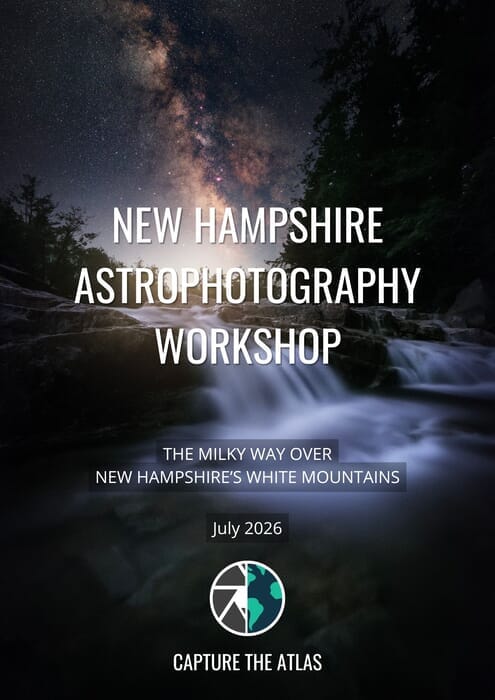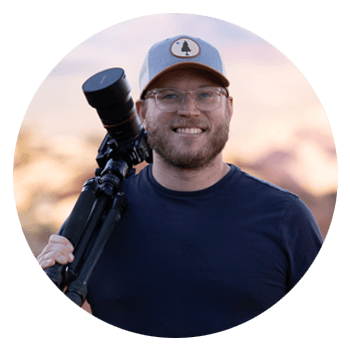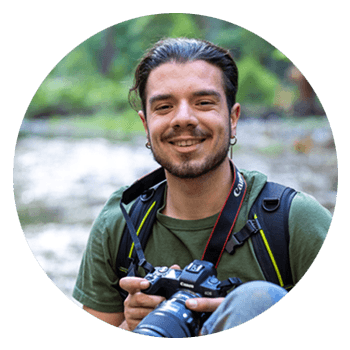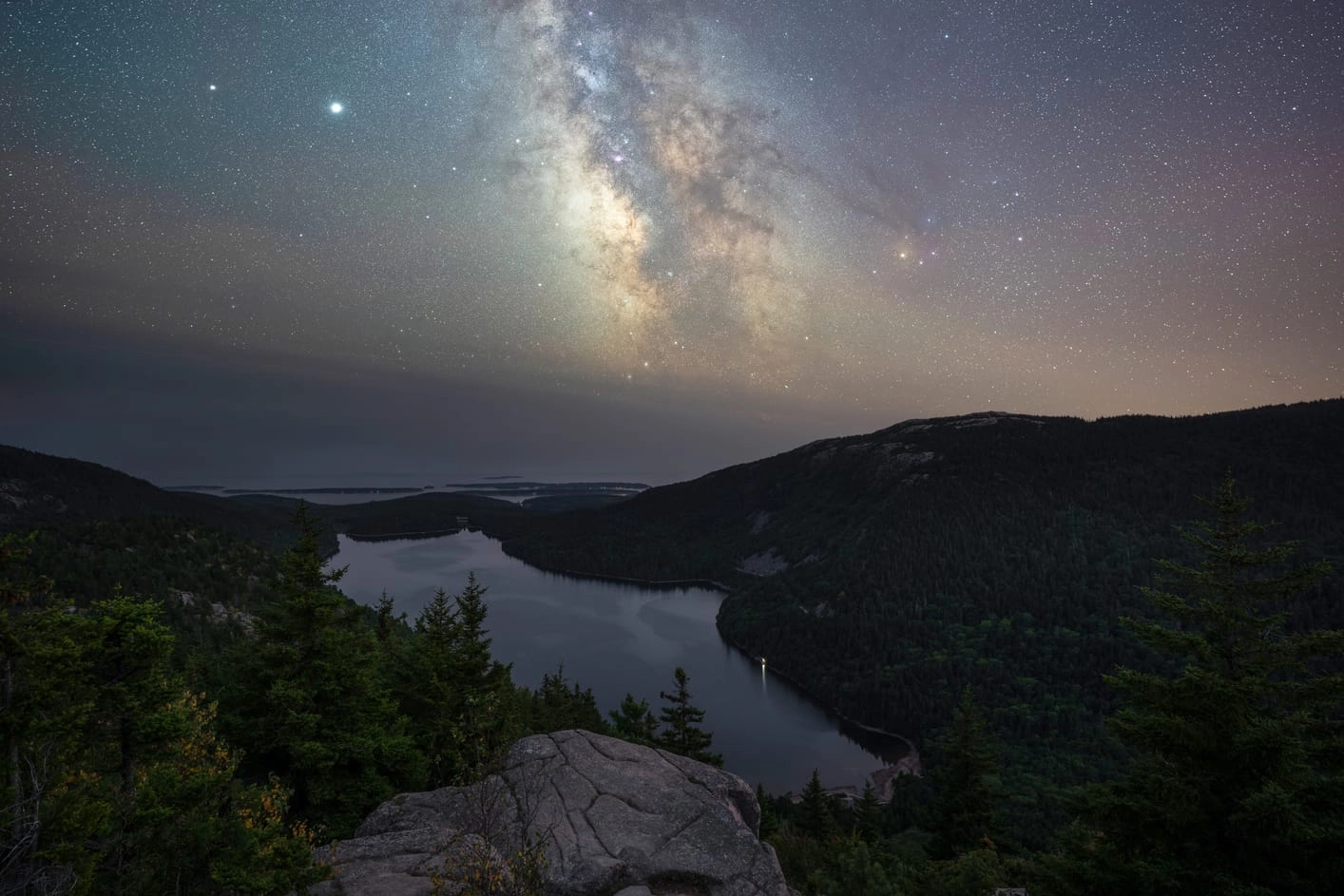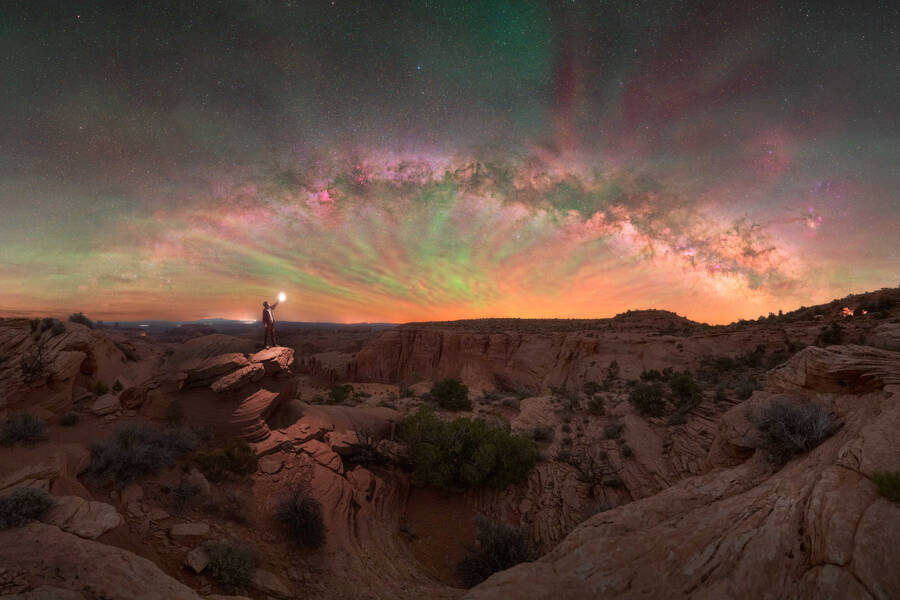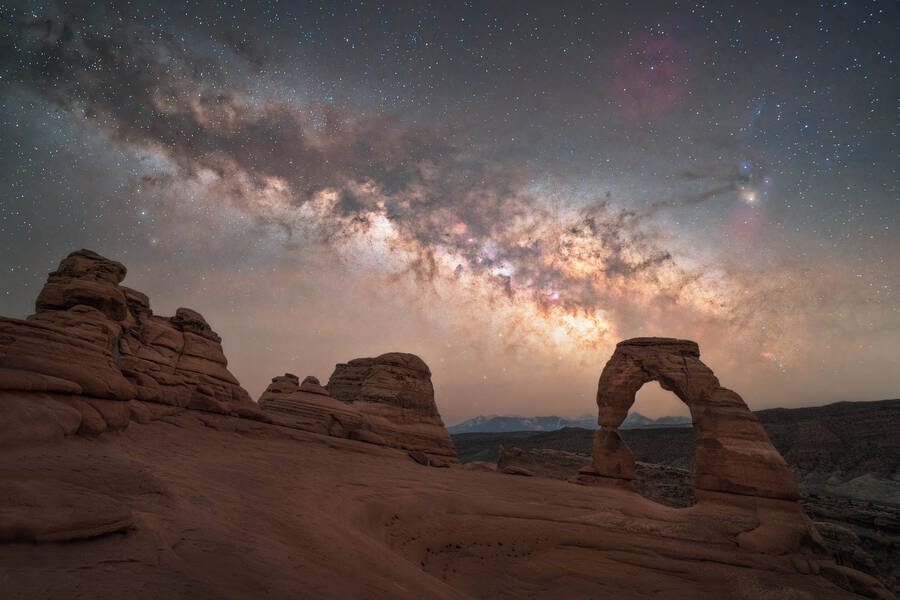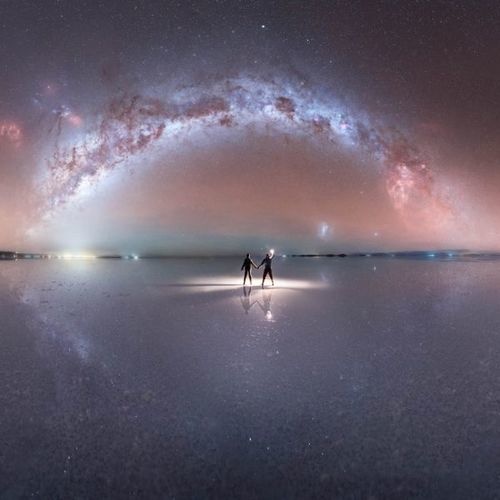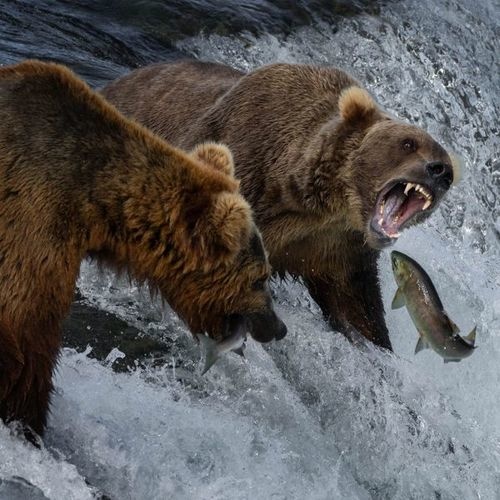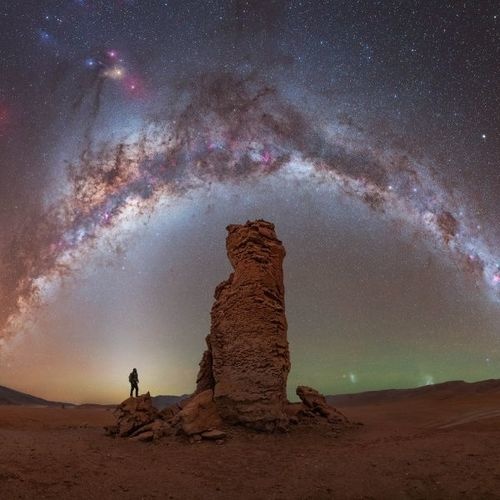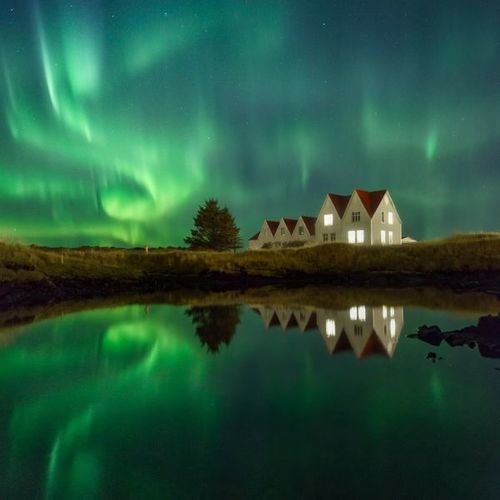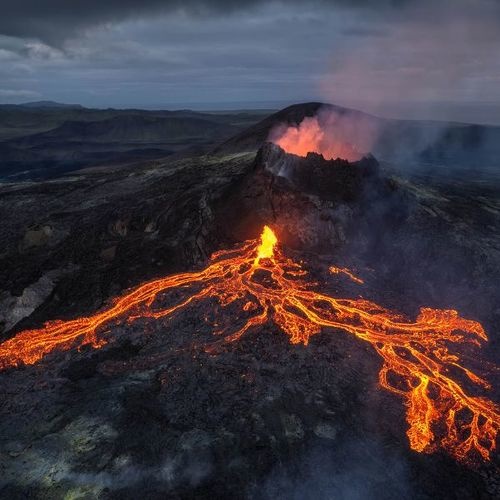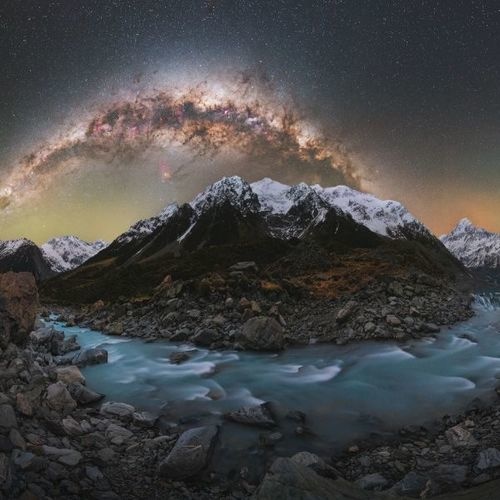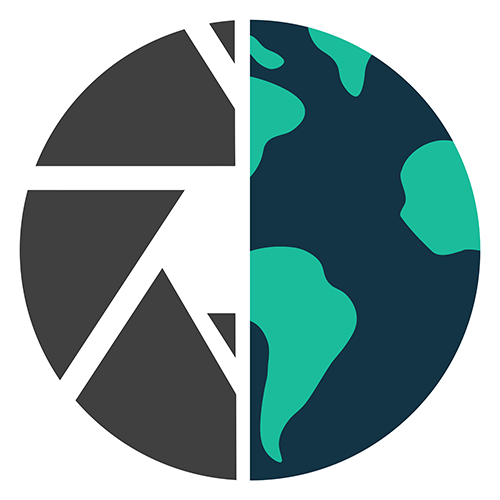2026 New Hampshire photography workshop
The Milky Way over New Hampshire’s White Mountains
Join us on our New Hampshire Workshop, where we’ll capture stunning landscapes and nightscapes in the White Mountains.
Our New Hampshire Workshop will take place in July, offering a unique opportunity to explore the region’s natural beauty, which may include vibrant wildflowers depending on seasonal conditions.
The workshop offers both daytime and nighttime photography experiences to make the most of the different locations. From iconic spots to hidden gems that we have discovered after years of scouting and shooting in the area.
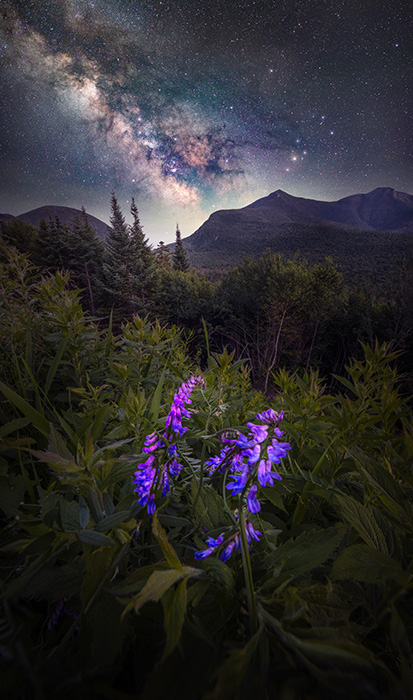
July 10th- July 14th, 2026 July 14th- July 18th, 2026
5 days and 4 nights
Involves short walks
10 participants
+ 2 photography guides
(Double ocuppancy)
- Accommodation in shared double rooms with queen beds at the Holiday Inn Express & Suites Lincoln for 4 nights, including breakfast
- 5 days of photo guide services by professional landscape and astrophotographers
- Instruction in a small group of 10 participants with a 5:1 ratio (5 students per instructor).
- Dedicated post-processing astrophotography sessions
- Transportation (including flights) to White Mountains National Forest
- Transportation during the trip (we will arrange carpools when traveling to different locations)
- Private room – Extra $580 (*Subject to availability)
- White Mountains National Forests entrance fee
- Meals except breakfast
- Health/travel insurance (We can help you purchase the best travel insurance according to your needs)
- Personal expenses, tips, and any other service not mentioned in the “INCLUDED” section
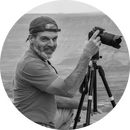
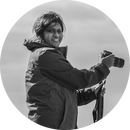
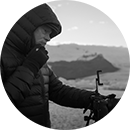
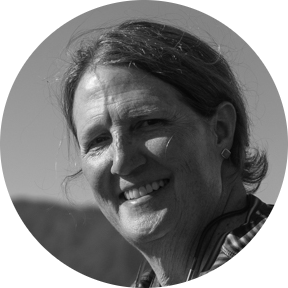
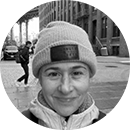

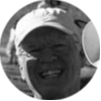
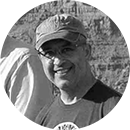
Photo Tour Overview
During this New Hampshire photography workshop, we will focus specifically on landscapes and nightscapes shooting the Milky Way over some of the most photogenic landscapes the New Hampshire White Mountains have to offer
These mountains make up some of the most rugged and dramatic scenes in all the Northeastern USA. The area around the White Mountains is beautiful and mainly dark, with a low level of light pollution making it ideal for capturing the Milky Way. During the summer months when you will be exploring the area with the group, there is also an abundance of wildflowers given the proper summer conditions!
We will personally help you capture the best po ssible images during this White Mountains photography workshop. The guides will show you the best techniques to shoot the Milky Way, from the basics to the most advanced techniques like star-tracking, and they will also run post-processing sessions so you can bring your captured images to life.
While this workshop is primarily focused on Astro shooting at night, we will also photograph sunrises, sunsets, and daytime images during the trip, as the Milky Way visibility is early at night.
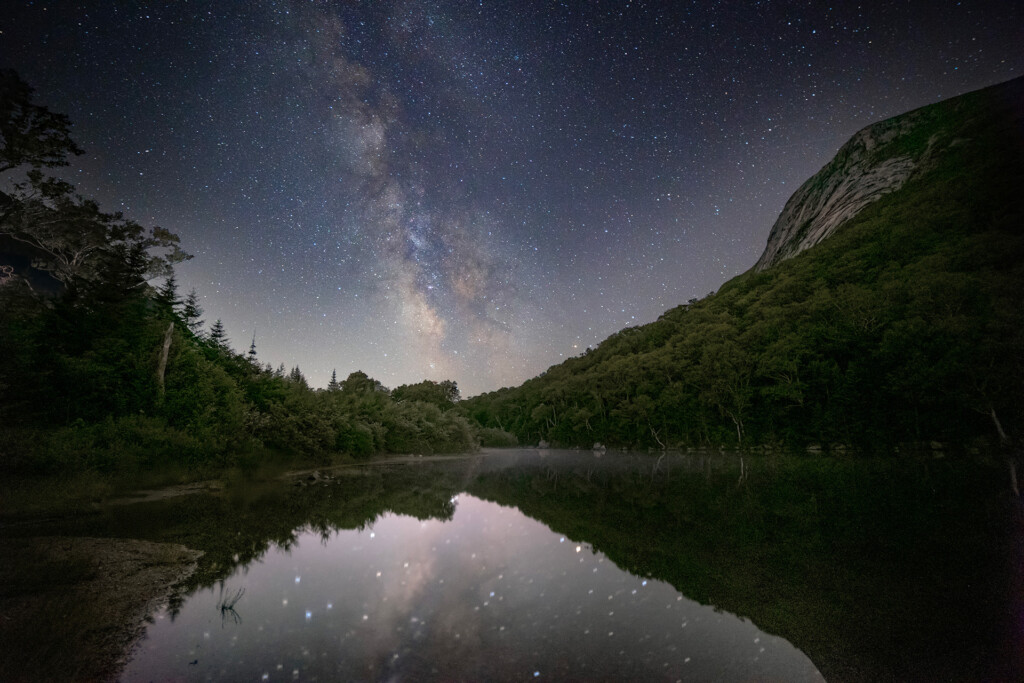
New Hampshire Photography Workshop Highlights
- Photo workshops in July 2026
- Group size: 10 participants + 2 instructors
- Main topics: Landscape and astrophotography
- Main areas: White Mountain National Forest
- Best time to capture the Milky Way from various scenic locations
- Dedicated post-processing sessions
- Accommodation included in Lincoln, NH close to the best locations
Download the Official New Hampshire Astrophoto Workshop Brochure
2026 New Hampshire Astrophotography Workshop itinerary
Our New Hampshire astrophotography workshop itinerary is flexible, and it will be adjusted according to the weather conditions so you can make the most of this trip.
Our workshop will be during the best time of year to capture a southeast-facing Milky Way over New Hampshire’s mountainous landscape, when our galaxy is visible from around 10pm to 2am.
Depending on the conditions, we might also have the opportunity to shoot beautiful wildflowers in some of the most iconic landscapes in the White Mountains or even the Northern Lights if there.
DAY 1: White Mountains Photography Workshop
Our New Hampshire milky way photography workshop begins at the “Holiday Inn Express & Suites Lincoln” at 2:00 PM. This hotel is situated in an ideal spot at one of the shortest drives from the main shooting locations, and it’ll be our base camp during the entire trip. It also puts us in close proximity to the beautiful and quaint town of Lincoln, where there are plenty of amenities and restaurants.
After a meet and greet with the rest of the group and a welcome speech, we will prepare for our first sunset session at the Pemigewasset Overlook.
On a summer day, this is the perfect spot to see the sun set over some of the mountains in the area. The location has ample parking and a small historic gazebo with info on the area.
That evening, we’ll visit our first night location on the Kancamagus Scenic Highway. Here, we’ll capture the Milky Way aligned with the mountains and some interesting elements in the foreground, including hopefully some wildflowers. The core will be visible directly over the peak of Mount Osceola.
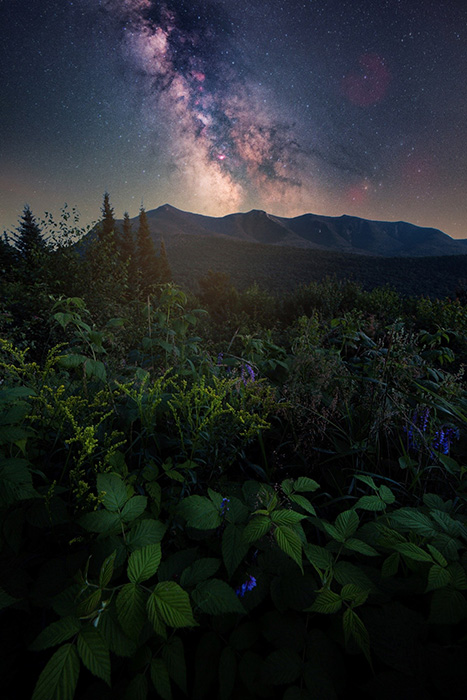
DAY 2: New Hampshire Photography workshop
We will start with a sunrise shoot on the Kancamagus Highway again, this time from the CL Graham Overlook. After that, we will get some grub, recharge some batteries, and rest up.
Later in the day, we will visit Franconia Notch, an area of the White Mountains which provides the most dramatic up-close views of the mountains and surrounding lakes and cliffs. We will take a short hike up to Bald Mountain for sunset to catch the last alpenglow on Mount Lafayette. This hike is short, and a little steep at the end, but for moderate hikers, takes a total of about 15-20 min.
After sunset, we will go across the street to Echo Lake Beach, where we will shoot the Milky Way over Echo Lake. If conditions allow, the lake will be still and we will capture the reflection of the core in the water!
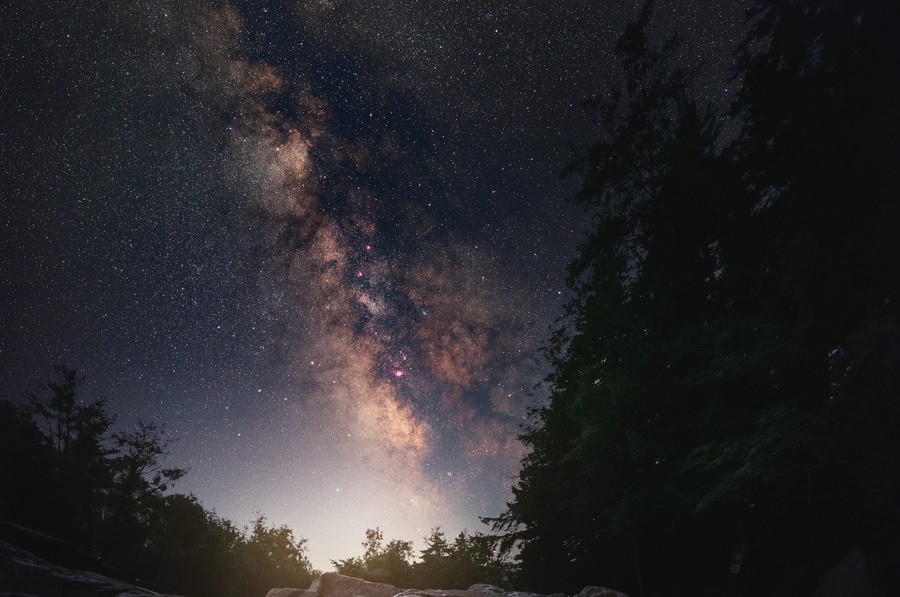
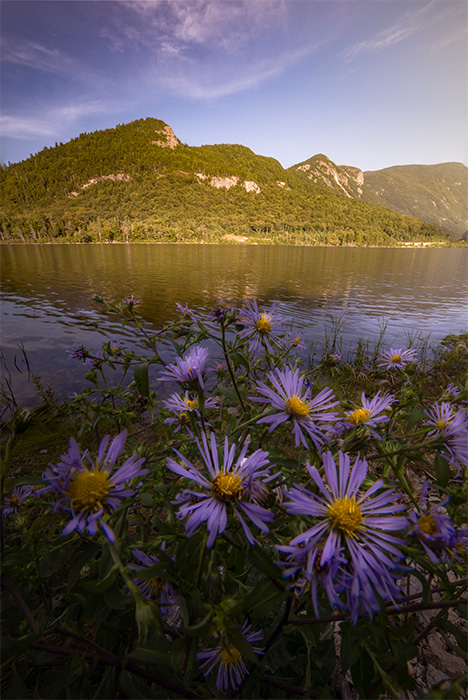
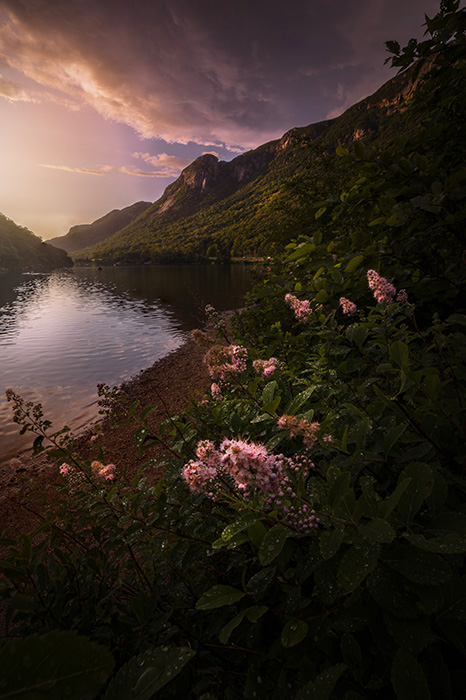
DAY 3: New Hampshire Astrophotography Workshop
On the third day of the workshop, we will start with a sunrise shoot at Sugar Hill Scenic Vista. This will be followed by a short drive to Sabbaday Falls, which is a 10min flat walk through the beautiful woods of the National Forest along a babbling stream to a dramatic glacial waterfall that carves its way through the surrounding rock.
After this morning session, we can get food, rest up and recharge. Later in the afternoon, we will have our first post-processing session, where we will work on the images that you have captured during the trip, with a special focus on your night images. We’ll show you the best techniques according to your skills, from the basics to some top-notch post-editing techniques.
In the evening and, after our editing session, we’ll visit Rocky Gorge. Rocky Gorge is another stunning waterfall that cascades through a crevasse that aligns perfectly to the south with the Milky Way. We will shoot here until the core goes out of view.
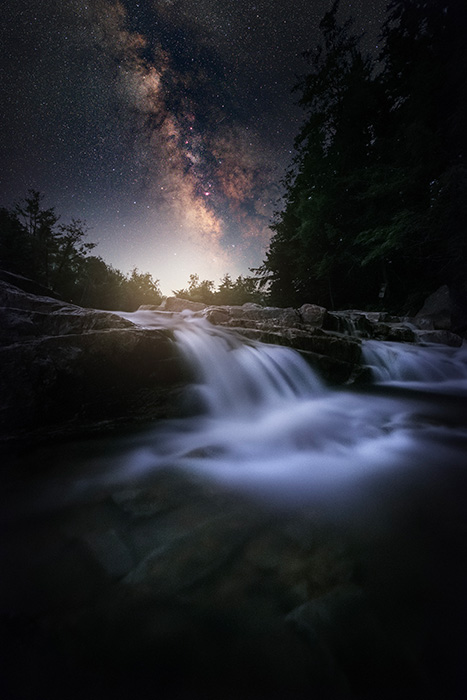
DAY 4: White Mountains Astrophotography Workshop
In our last sunrise, we’ll revisit one of the main icons of White Mountains; Echo Lake. The light and conditions can create a drastic change in the scene, and we’ll look for new compositions at this gorgeous lake, this time under the morning light.
Later that afternoon, we’ll do a second post-processing session where we’ll continue with the editing instruction to help you with your images of the trip.
Depending on the clouds and night conditions throughout the trip, we’ll reserve the last night to do any of the night shooting plans that we couldn’t do in the previous days. If we are lucky with clear skies on the previous nights, we’ll do a new location: Beaver Pond. This pond has a wide view of the surrounding hills, and the Milky Way peeks over the top of the mountain. This location can also be amazing for star reflections if the wind is calm enough.
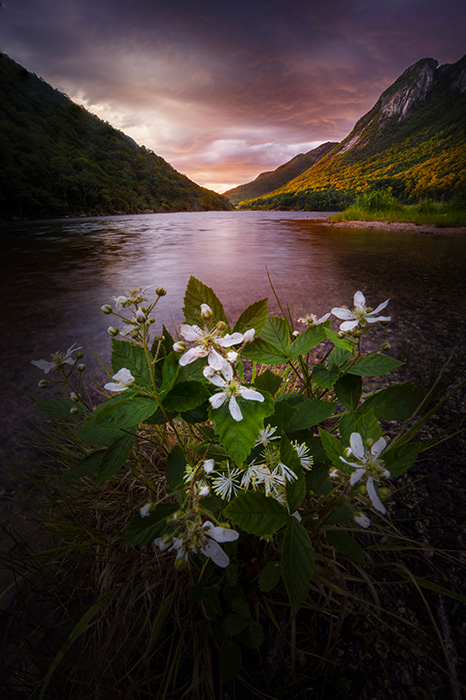
DAY 5: White Mountains Astrophotography Workshop
For the final day, we’ll do a final sunrise shooting along the White Mountains.
After a breakfast in our hotel, we will conclude our New Hampshire photography workshop.
Price: $3,390 USD
Deposit: $1,500 USD
A $1,500 deposit is required to reserve your spot for this workshop. You can also pay in full at any time. The remaining balance is due 120 days before the start of the tour. If the remaining balance is not paid in full by the due date, you will lose your spot.
What does the price include?
Included
- Accommodation in shared double rooms with queen beds at the
Holiday Inn Express & Suites Lincoln for 4 nights, including breakfast. - 5 days of photo guide services by professional landscape and astrophotographers.
- Instruction in a small group of 10 participants with a 5:1 ratio (5 students per instructor).
- Dedicated post-processing astrophotography sessions.
- Accommodation in shared double rooms with queen beds at the
*Bonus
- Access to Dan Zafra’s full Capture the Milky Way & Benro Polaris Course (valued at $349).
- Access to the recorded material during the tour.
- Access to David Aguilar’s Moody Landscapes course.
Not Included
- Transportation (including flights) to White Mountains National Forest.
- Transportation during the trip (we will arrange carpools when traveling to different locations).
- Private room – Extra $580 (*Subject to availability)
- White Mountains National Forests entrance fee.
- Meals except breakfast.
- Health/travel insurance (We can help you purchase the best travel insurance according to your needs).
- Personal expenses, tips, and any other service not mentioned in the “INCLUDED” section.
Upcoming New Hampshire Astrophotography Workshop dates








What will I learn during this New Hampshire Astrophotography Workshop?
This workshop is mainly focused on night and Milky Way photography. However, we will also photograph landscapes during the blue and golden hours, so you’ll have plenty of opportunities to learn about landscape astrophotography.
What you learn during the workshop will vary according to your goals and skills. Your instructors are professional photographers with extensive experience who will help you take your photography to the next level.
Photography basics
Some of the photography basics you can learn during the workshop are:
- Getting comfortable shooting different types of landscapes and photos in manual mode
- Adjusting the best camera settings in each situation
- Familiarizing yourself with the basics of night and Milky Way photography
- Enhancing your compositions with the best techniques
- Designing your own shooting workflow to be more effective in the field
- Photographing daytime and night panoramas
Advanced photography techniques
Some of the advanced photography techniques you can learn during the workshop are:
- Creating powerful compositions that tell a story and engage the viewer
- Building a connection between your photography and your vision
- Becoming a master of light: learn how to enhance it and keep it under control
- Advanced night & Milky Way photography techniques like stacking and panoramas
- Advanced bracketing and exposure blending to capture the best dynamic range
- Using wide-angle distortion and focal length blending to create powerful images
- Focus stacking to capture tack-sharp images with interesting foregrounds
- Advanced Milky Way shooting using a star-tracker
Post-processing techniques
Some of the post-processing techniques that you can learn with are:
- How to start using Lightroom and Photoshop (all the basics)
- Preparing your images in Lightroom/Adobe Camera Raw to start on the right foot
- Stitching panoramas using different software like Lightroom, Photoshop, or PTGui Pro
- Stacking night images using Starry Landscape Stacker or Sequator
- Reducing the noise in your night images using Topaz Denoise AI
- All types of Blendings (exposure, focal length, focus, etc.)
- Light shaping and Dodge & Burn in your landscape images
- Advanced Milky Way techniques like star reduction, structure, natural colors, etc.
Your instructors on this White Mountains astrophoto tour
Dorian Sanders will be the tour leader of this workshop and will help you capture the night images that you’re envisioning.
He is a skilled astrophotographer who also has extensive experience, having led workshops focusing on how to use star trackers, how to compose scenes for the most dramatic images, and how to process using a plethora of digital platforms.
Being based in Vermont, White Mountains National Forest is practically in his backyard. Having been there countless times over the past few years, he is very familiar with the main subjects that you’ll be photographing on this trip, and he can also help you with other topics like landscape or long-exposure photography.
Dorian will show you how to find great compositions and help you with your night photography, from the basics to advanced techniques like star-tracking.
James McGivern will be the co-leader of this workshop. He is a proficient astrophotographer and an expert in capturing all types of images, from wide-field nightscapes to deep-sky imaging.
James is based in Southern California and has explored and photographed some of the best places for Astro in the US. Apart from White Mountains, he leads workshops in places like Death Valley, Utah, Monument Valley, etc.
He has taught night photography workshops at Sky’s the Limit Observatory and has volunteered for several outreach programs at the observatory.
James will be able to help you with your night photography from the basics to advanced techniques like star-tracking.
What to bring on a White Mountains Photo Tour
We will send you a complete list of everything that we recommend for this tour upon sign-up. Below, you can find a summary of things you might need:
Photography gear
- A mirrorless or DSLR camera.
- A sturdy tripod and a remote shutter.
- A wide-angle lens, such as 14-24 mm.
- A medium zoom lens, such as 24-70 mm.
- A telephoto lens, like a 70-200 mm lens.
- A camera bag to transport all your equipment.
- A headlamp for the night shoots.
- A lens warmer to prevent humidity from fogging up your lens.
- Glow-in-the-dark tape for your tripod.
- A laptop for the post-processing sessions
Some optional items if you are focused on advanced MW photography are:
- A star-tracker.
- A laser for doing the polar alignment.
*While zoom lenses are acceptable for this workshop, prime lenses are recommended for Milky Way photography. Some of the best lenses in this range are:
- 20 mm f/1.8, 24 mm f/1.4, 28 mm f/1.4, 35 mm f/1.8, 40 mm f/1.4, 50 mm f/1.8
You can get them either from your camera brand or from third-party manufacturers like Rokinon or Sigma.
*This New Hampshire astrophotography workshop focuses on Milky Way nightscapes and not on deep-sky imaging. However, you can bring a telephoto/telescope and take your own deep-sky photos if you like.
You may be interested in this guide, where you can dive deeper into photography equipment for traveling.
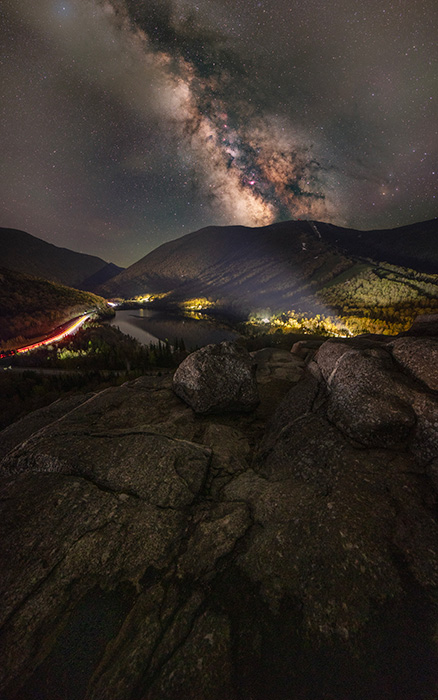
Clothing
Even though the sun makes temperatures warm during the day, nights can be chilly after sunset in late September, with temperatures around the 50s in the evening and night.
For this reason, we recommend bringing the following clothing:
- A system of layers to wear at night (base layer, windproof layer).
- A good pair of breathable boots (to protect your feet and ankles while hiking over rocks and uneven terrain).
- A light hat and gloves for the night photography sessions in case it gets cold.
Documentation
If you are traveling from outside the US, you may need a specific travel visa or an electronic travel authorization (“ESTA”) depending on your country of origin. We can help you with this process.
Other important information
Accommodation
During this White Mountains astrophotography workshop, we will be staying in shared rooms with private bathrooms at the Holiday Inn Express & Suites Lincoln East, one of the top-rated accommodations close to the National Forest.
You can book one of the limited private rooms at an exta $580 supplement.
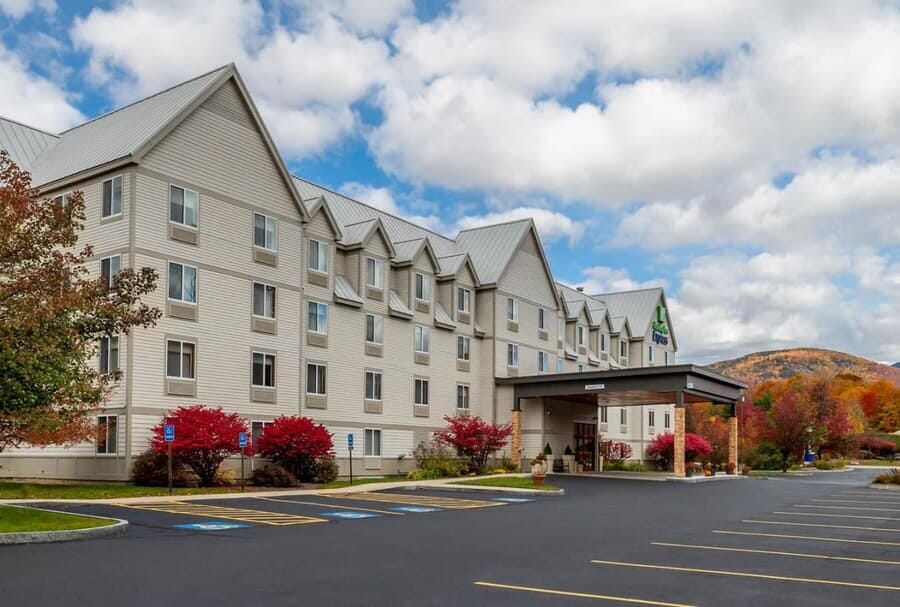
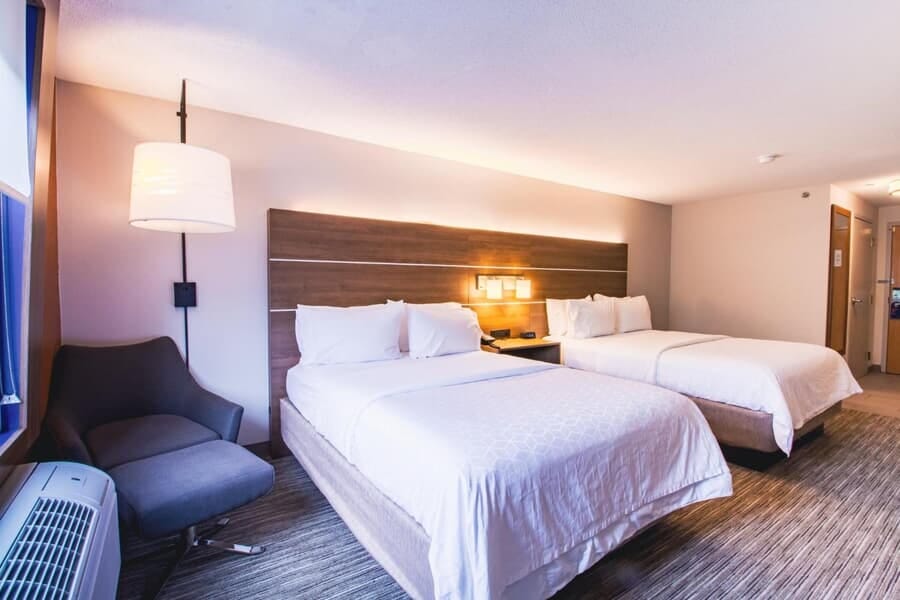
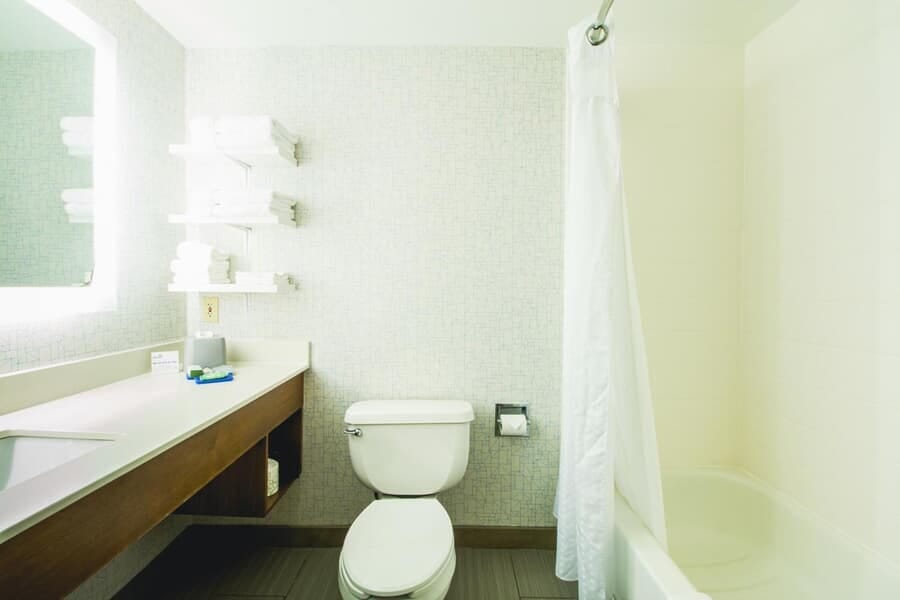
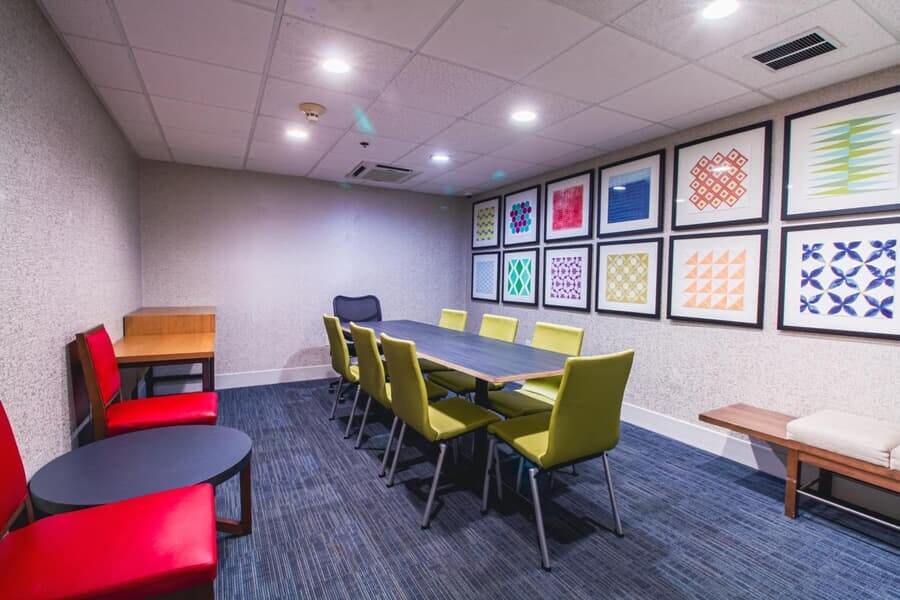
Hiking
This is not a hiking photo tour, however, there are a few walks and hikes to get to and from the photography locations that you should consider.
What expenses should you consider for this White Mountains Photography Workshop?
Flights
There are different airports within a relatively short drive from White Mountains. The nearest airport to White Mountains National Forest is Manchester, NH, (MHT) which is 84.8 miles away. The other option for arriving is Boston Logan, (BOS) (134 miles away) Airline ticket prices will depend on the airport you are flying from. We recommend reading this article if you want to find the best flights from your current location.
Transportation
Transportation will not be included, and all the driving will be on paved, easy roads, so any type of vehicle is fine for this New Hampshire photo workshop.
When traveling to different locations on the tour, we will try to carpool as often as possible. Some parking areas are small, and we would like to minimize our impact on the land and ecosystem as much as possible.
Meals
Meals are not included, except for breakfast in our hotel.
Lincoln has grocery stores where you can buy food, drinks, and snacks. We recommend buying some groceries and snacks before the start of the tour, since our schedule will completely depend on the shooting conditions, and some days, we might not make it to any of the local restaurants for lunch/dinner.
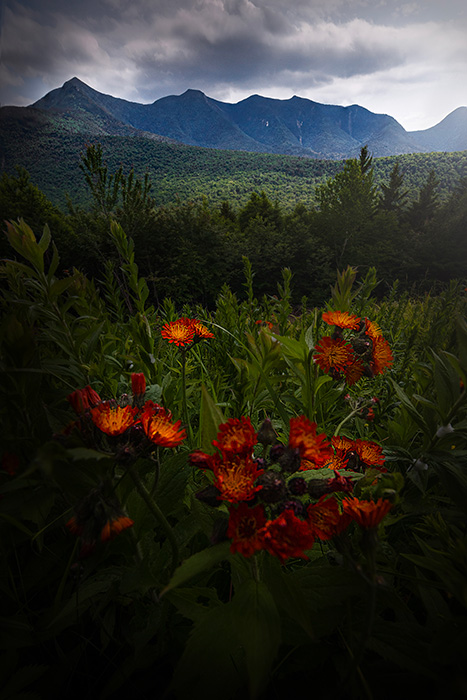
Entrance fees
The White Mountain National Forest requires a recreation pass at certain sites. A daily pass is $5 per vehicle, or you can purchase an annual White Mountain National Forest pass for $30. Passes are available online or at kiosks located at major recreation areas.
If you plan to visit other federal recreation sites within the year, the “America the Beautiful” annual pass is a great option. It costs $80 and provides unlimited access to National Parks, National Forests, and other federal lands across the country.
What makes this New Hampshire Astrophoto Tour unique?
Our astrophotography workshops are completely centered on photography: finding the best moments to shoot, running dedicated post-processing sessions, and creating an intensive experience that is conducive to learning and taking the best Milky Way images.
Our workshops are limited to small groups with a ratio of no more than five students per instructor. This is also an important factor for providing the attentive instruction you need during the tour.
You’ll learn how to make the most of your camera gear to capture Milky Way images as well as the most effective post-processing techniques to bring your images to life. The instruction and the setting in an exclusive group of astrophotographers make this workshop unique and distinct from standard night photography tours.
We will discuss your goals before the tour so we can create a dedicated instruction plan for you. It doesn’t matter your age or skills; we will design your plan and provide you with materials before, during, and after the workshop so the learning process is not limited to just the tour.
We have spent years designing national and international photo tours with successful results, helping photographers with their Milky Way & Northern Lights photography. Dan’s online courses have also helped more than 400 photographers over the last few years.
Beyond the photography, our photography workshops help build strong bonds that last forever. After our trip, you’ll feel like you have been with a group of friends rather than on a standard tour. We are thankful to have plenty of repeat clients who keep traveling and learning with us.
Frequent asked questions about our New Hampshire Astrophoto Tour
What level of photography knowledge should I have to attend this photo tour to New Hampshire?
Whether you are experienced or just starting out in photography, you are welcome, and I am convinced that you will progress very fast. Together, we will get you back home with a greater and deeper knowledge of many photography topics.
Once you sign up for the workshop, we will discuss your skills and goals for this tour, and I’ll organize a teaching plan so you can make the most of this experience.
What physical shape do I need to be in?
Most of the locations on this tour require a short walk from the parking lot. However, we’ll sometimes be walking on flat to moderately uphill paths to find the best compositions. These paths are mainly gravel and rocks. For this reason, we recommend being in good physical shape in order to enjoy this tour to the fullest.
Am I too young/old for this New Hampshire Astrophoto Tour?
There is no age limit. This trip is perfect for anyone over 18 years old who wants to photograph New Hampshire with us.
Can my non-photographer companion join us on the tour?
Non-photographer companions are welcome to join the tour, and they need to book a spot under the same price and conditions as any other participant. (We don’t allow non-participant companions tagging along with the group). We have had plenty of non-photographer companions over the years and all of them enjoyed an amazing experience. As long as they enjoy nature, beautiful landscapes, and are a bit patient with the schedules of a photo tour, joining the trip can be a great experience regardless of the shooting.
Can I use my drone?
Capture the Atlas is drone-friendly. Both guides are experienced drone pilots and can help you with your drone photography.
We will advise you on the areas where you are allowed to fly and show you the best aerial photography techniques.
Our Happy Students!
We have had the opportunity to work with and help countless photographers over the last years:

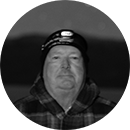
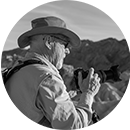

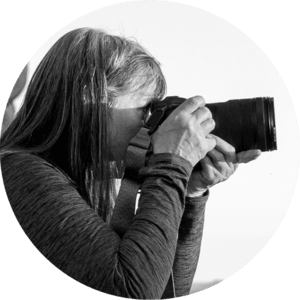
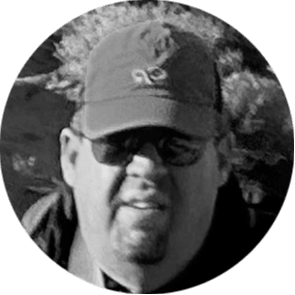
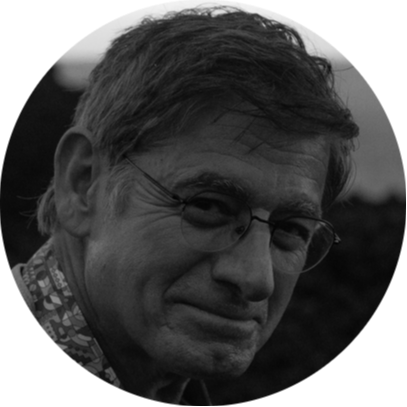
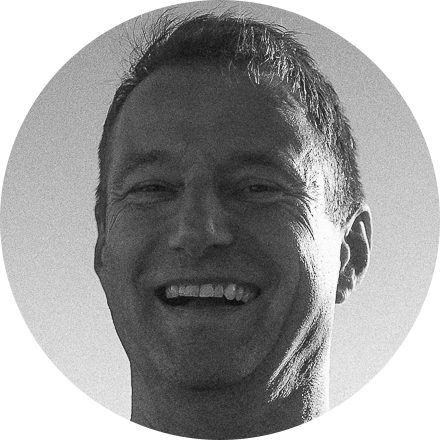
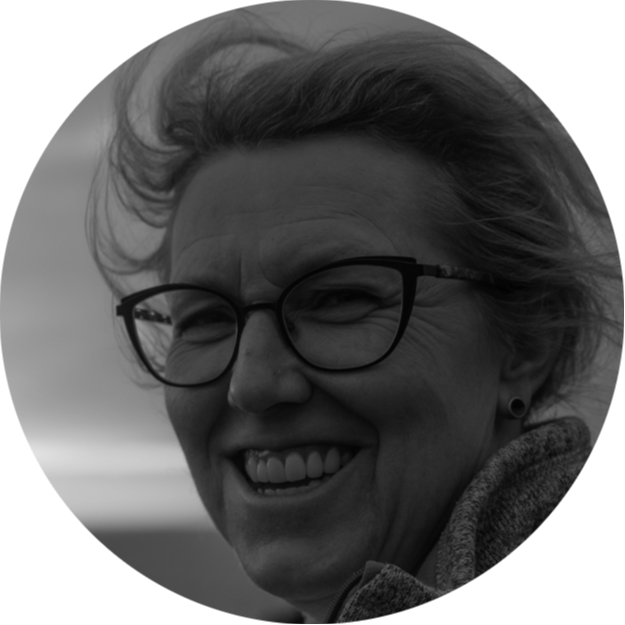
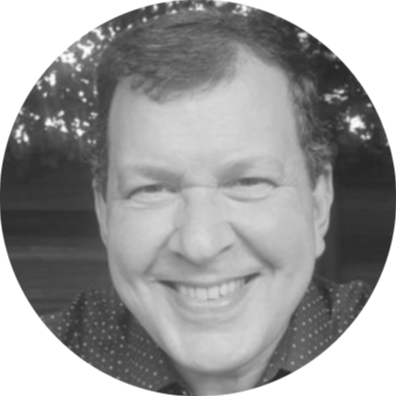
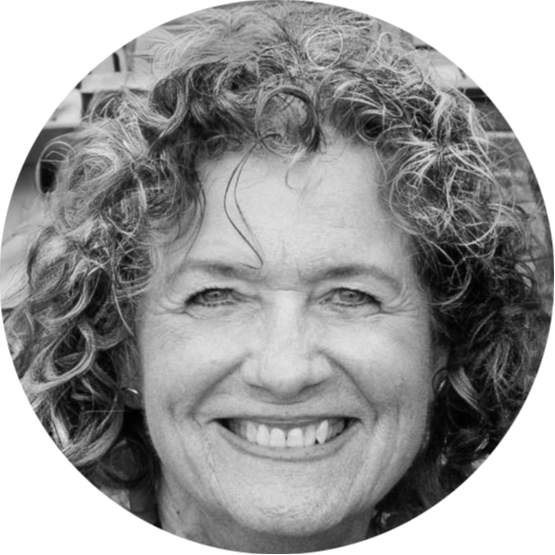
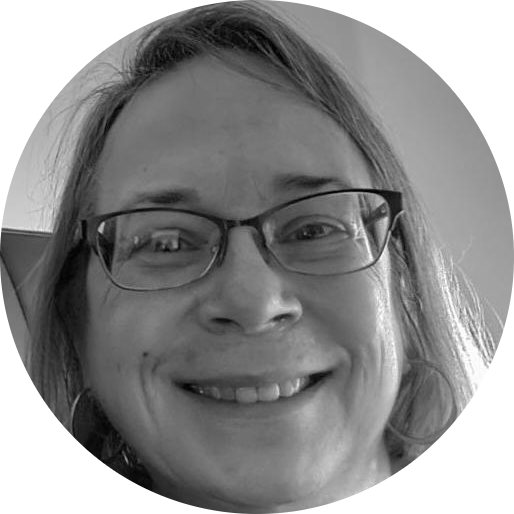
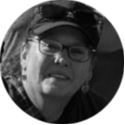
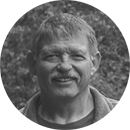
The White Mountains are one of the most spectacular places to photograph the Milky Way in the Northeastern United States. Towering peaks, dramatic ridges, quiet valleys, and pristine lakes create a magical setting to capture the night sky. In July, the region comes alive with lush greenery and, depending on the season, colorful wildflowers that add another layer of beauty to the landscapes.
With some of the darkest skies in New England, the White Mountains are an ideal stage for astrophotography. Here, you’ll not only capture the Milky Way arching over rugged summits and crystal-clear rivers but also enjoy the golden light of sunrise and sunset painting the mountain scenery.
Join us for an unforgettable journey into the heart of New Hampshire, where we’ll chase both light and stars together.
Let’s capture the Milky Way!
You’ve probably seen Capture the Atlas in…






